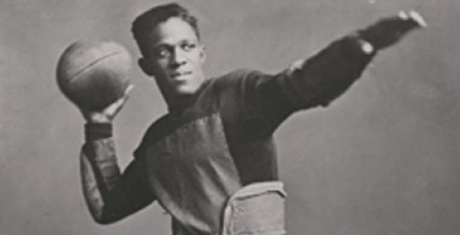Frederick Douglass “Fritz” Pollard became the first Black coach in 1921.
Boosting NFL Executive Diversity: Fritz Pollard Alliance, Rooney Rule, And African Americans
Over 100 million are expected to tune into the National Football League’s (NFL) Super Bowl telecast.
The NFL is a professional American football league that constitutes one of the four major professional sports leagues in North America. The NFL is a $9.3 billion business composed of 32 teams divided equally between the National Football Conference (NFC) and the American Football Conference (AFC).
The NFL runs a 17-week regular season from the week after Labor Day to the week after Christmas with each team playing 16 games and having one bye week. The NFL runs a 256-game regular season. The league has approximately 1,600 employees.
Of the league’s 32 teams, six (four division winners and two wild-card teams) from each conference compete in the NFL playoffs, a single-elimination tournament culminating in the Super Bowl, played between the champions of the NFC and AFC. The NFL considers itself a trade association made up of and financed by its 32 member teams.
In the NFL 2014 Conference Championships, each NFC team’s starting quarterback was Black. Blacks comprise 70 percent of NFL rosters. Up to nine Blacks were starting quarterbacks during this last season. Seventy-five percent of the league’s office management is White. All owners are White.
Discussions of race always are heated in this country, but there’s no denying football is a predominantly African-American sport that has taken a step back in hiring minorities as head coaches and in front offices. During the regular season there were seven African-American coaches in the NFL.
Over the last six years, the plight of the Black NFL coach seemed to be taking some strides. In 2006, when the Indianapolis Colts defeated the Chicago Bears, we saw Tony Dungy and Lovie Smith make history as the first pair of Black coaches to face each other in the championship game. In the five years after that a Black coach appeared in four Super Bowls, with Pittsburgh Steelers head coach Mike Tomlin appearing in two.
At the end of this past regular season the Cleveland Browns, Minnesota Vikings, Detroit Lions, Tampa Bay Buccaneers, Houston Texans and Washington Redskins fired their head coaches. Leslie Frazer, former head coach of the Vikings, was the only Black to lose his job. During the January 2014 hiring cycle, the Tampa Bay Buccaneers announced their hiring of Lovie Smith as their new coach.
To conform with the “Rooney Rule” every team with a job open, at least went through the motions by interviewing a Black for their opening. Smith and Jim Caldwell became head coaches again in Detroit and Tampa Bay. The Rooney Rule requires teams to interview at least one minority candidate for head coaching positions and has been a valuable tool in expanding diversity and inclusion in hiring practices.
Still there is more work to do, especially around increasing and strengthening the pipeline of diverse candidates for head coach and senior executive positions. Additional “equal opportunity” steps that ensure more diversity and inclusion are what professional football needs. Going forward there needs to be more Black participation among NFL players, head coaches, assistant coaches, owners, league management, referees, team physicians, head trainers, and radio/TV announcers. Blacks should exert more scrutiny regarding sports programs’ employment, development and equal opportunity.
In 1920, Frederick Douglass “Fritz” Pollard and Bobby Marshall were the first Black players in the NFL. Pollard became the first Black coach in 1921. From this legacy the Fritz Pollard Alliance was formed to promote diversity and candidate talent development for coaching, front office executives and scouting staff throughout the NFL. Black head coaches like Tony Dungy, Lovie Smith and Marvin Lewis are involved in mentoring and networking programs and educating team owners and managers regarding minority candidates.
The Alliance has suggested that the Rooney Rule cover offensive and defensive coordinators and assistant head coaches. The group doesn’t believe enough minorities have been given opportunities as coordinators – especially those that call plays – and that if that pipeline was expanded, more minority candidates could be given opportunities.
William Reed is publisher of “Who’s Who in Black Corporate America” and available for projects via the BaileyGroup.org







